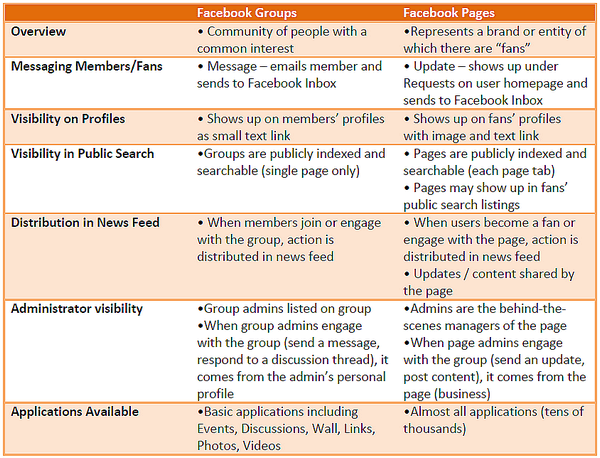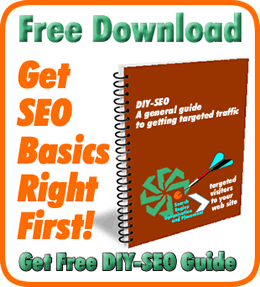A page is better for your business
Another question, yesterday, from a business acquaintance, who had setup a Group and was using it in a business context, asked if that was the best option or whether a Facebook Page was a better way to go.
In a very few cases it may make sense to create a Facebook group, however, in the majority of situations, businesses should create a Page to represent their company or organisation on Facebook.
The main difference is the target audience associated with each option. A group’s audience is primarily based around a community of like-minded members having a common interest. With groups when posts, comments or other activity is undertaken it shows as coming from the personal profile of the administrator.
Pages best for branding your business
A Page is separate from the creator’s personal profile and can represent a brand or other corporate entity.
When a page administrator engages, sends an update or posts content, it is branded with the businesses page identity.
Unlike groups, friends don’t need to be added as Pages exist outside the friend network. Activity and interaction is through engagement and the encouragement of visitors to [LIKE] the page. It is open to more exposure as visibility is not limited to your friends stream alone. Any visitor to the page can [LIKE] it, friend or otherwise.
Extended flexibility through Applications
Additionally, pages offer far more flexibility in content display. Groups have a limited range of applications available to them being limited to Events, Discussions, Wall, Links, Photos, Videos etc.
Pages on the other hand can be extended from a range of applications, numbered in the 1000’s, including the ability to include advanced functionality on your Page using the Facebook Static FBML application.
FBML adds a box to your Page in which you can render HTML or FBML (Facebook Markup Language) for enhanced Page customisation.
These can be used as landing pages for new visitors, newsletter signup pages, store fronts or for running special promotional events.
There are too many to list but cover the full range with more being added each and every day.
Promoting your new page
As with any online marketing activity the main criteria is promoting your new page to your target audience. In some cases that could be your existing friends and Facebook provides the option and an easy method to do that.
In addition, most existing businesses will already have a captive audience in their customer base and in the case where existing email marketing facilities are already used or available they would be a good starting point.
Including a badge, such as the one on the right, on your blog and including a link to your Facebook Page in the signature of all your email correspondence would also not go amiss.
Lastly but not least, traditional search engine optimisation techniques (seo) can also be used by optimising content on a tab-by-tab basis.
An additional benefit of a Facebook Page is that unlike Groups, where only one page is indexable, each tab has the opportunity of being separately indexed and showing up in search engine results page (serp).
However, the overiding criterion is providing interesting, useful and engaging content that encourages fans that [LIKE] your page to participate both in the short- and long-term enabling you to build a relationship with not only them but their wider circle of friends.


